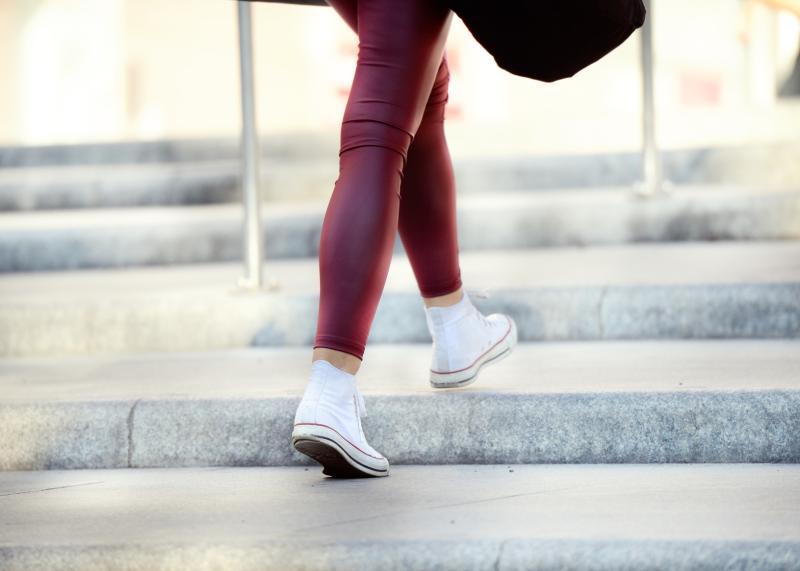 Walking or taking the stairs are both effective to burn excess calories
Walking or taking the stairs are both effective to burn excess caloriesLow-impact physical activity may have positive benefits on sleep quality, especially in women, a recent study has shown.
The study included 59 participants (mean age, 49.64±8.31 years; 73 percent female) who were healthy enough to walk briskly and worked full time. Participants were randomly assigned to either take 2,000 more steps per day relative to their baseline (intervention group) or to no weekly step goals (control group). Physical activity was measured using the Fitbit Zip, while sleep was assessed using the Pittsburgh Sleep Quality Index (PSQI).
Mean global PSQI scores did not change significantly from pre- to post-test (5.37±3.31 vs 5.04±3.28; p=0.37), and the interaction of time and condition also failed to reach statistical significance (p=0.46). The same was true for sleep duration (time: p=0.44; time-by-condition: p=0.29) and sleep efficiency (time: p=0.34; time-by-condition: p=0.70).
However, researchers found a moderating effect of sex on the relationship between daily number of steps and sleep quality. In particular, women who took more steps and spent more time engaging in physical activity were more likely to sleep better. This effect was not evident in men.
Despite no clear between-treatment differences, within-person analyses found that, after controlling for age, sex and intervention condition, participants reported significantly better sleep quality on days in which they accumulated more daily steps than usual (p=0.05). The number of steps had the same effect on sleep duration (p=0.05).
Moreover, on days where participants were able to engage in more active minutes than average, they also reported significantly better sleep quality (p=0.05) and longer sleep duration (p=0.04).